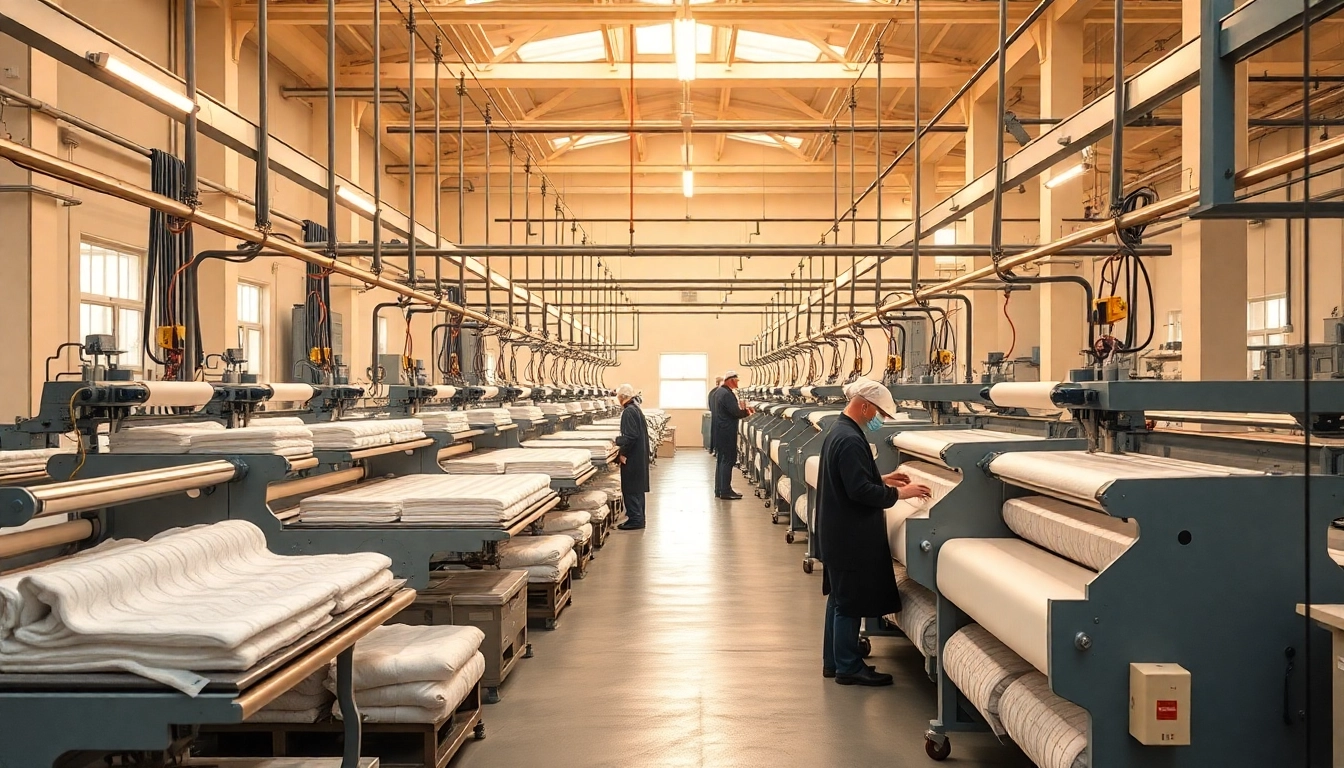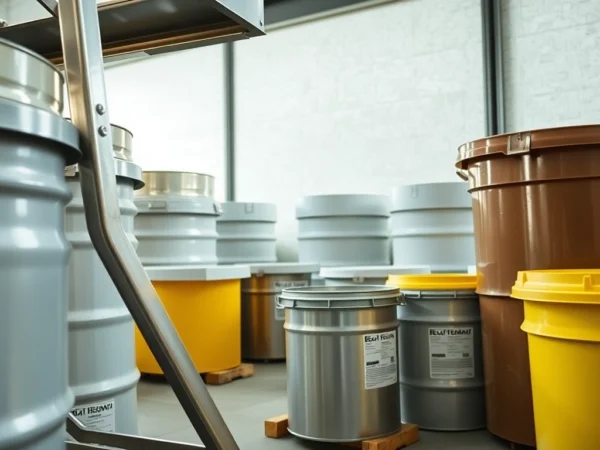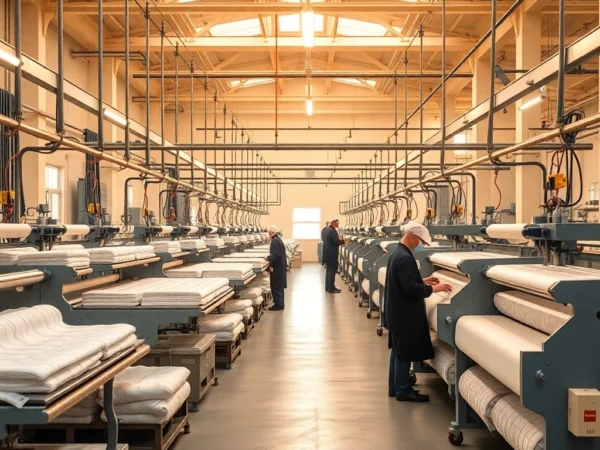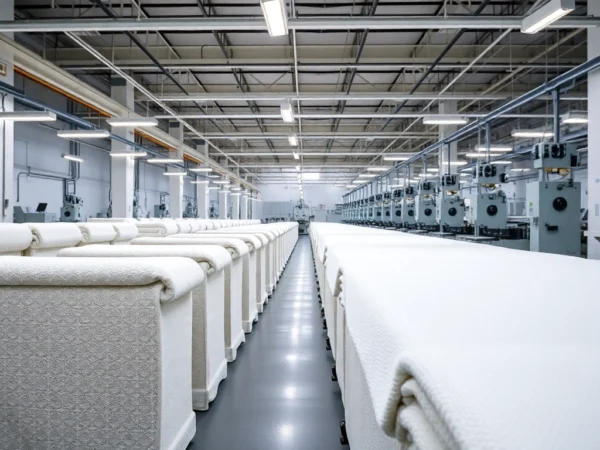Top Towel Factory in Pakistan: Elevating Textile Manufacturing Standards
Overview of the Towel Manufacturing Industry in Pakistan
The towel manufacturing sector in Pakistan has emerged as a significant player in the global textile industry, renowned for producing high-quality terry towels, bath linens, and various home textiles. This industry’s roots trace back decades, largely developing through the country’s strong textile tradition and strategic focus on export-oriented manufacturing. Today, Pakistan stands among the top towel producers worldwide, leveraging its skilled labor force, access to premium raw materials, and competitive pricing to attract international buyers.
To explore the possibilities and industry standards of this sector, start by understanding the towel factory in pakistan. Such factories incorporate the latest technological advancements and adhere to strict quality standards to meet the evolving demands of global markets.
1.1 History and Growth of Towel Manufacturing in Pakistan
The history of towel manufacturing in Pakistan is intertwined with the evolution of its textile industry, which dates back to the mid-20th century. Initially, the industry focused on raw textile product exports, but over time, specialization in finished goods, particularly terry towels and bathrobes, became prominent. Strategic government policies, industry clusters, and the availability of raw materials like cotton significantly accelerated growth. The adoption of modern machinery and sustainable practices has allowed Pakistani manufacturers to scale up production while maintaining competitive quality standards.
In recent decades, Pakistan’s towel industry experienced rapid growth fueled by increasing global demand for affordable luxury textiles. Manufacturers invested heavily in automation, dyeing technologies, and eco-friendly processes, positioning Pakistani towels as a preferred choice for international markets that prioritize quality and sustainability.
1.2 Key Players and Leading Towel Factories in Pakistan
Several key players dominate the towel manufacturing landscape in Pakistan, both in terms of production capacity and export reach. Companies such as Tulip Towel Industries, Imperial Towel Industries, and CHTL are well-known for their high standards and extensive product ranges. These companies leverage advanced weaving and finishing technologies, enabling them to produce a broad spectrum of towels—lightweight beach towels, plush bath towels, and hotel linens, to name a few.
Furthermore, associations such as the Towel Manufacturer Association of Pakistan promote best practices, facilitate networking, and support export initiatives—bolstering industry growth and global competitiveness.
1.3 Industry Challenges and Export Opportunities
Despite impressive growth, the industry faces challenges such as fluctuating raw material prices, meeting increasing international quality standards, and navigating complex logistics and trade regulations. Additionally, global competition from countries like India and China demands continuous innovation and branding efforts from Pakistani manufacturers.
However, these challenges present significant opportunities. By focusing on sustainable practices, certifications, and customization, Pakistani towel factories can carve a niche in luxury and eco-conscious segments. Moreover, expanding into emerging markets and strengthening existing export channels can unlock substantial revenue streams, leveraging Pakistan’s reputation for quality and affordability.
Features of a Leading Towel Factory in Pakistan
2.1 Modern Technology and Production Techniques
Leading towel factories in Pakistan adopt state-of-the-art weaving and finishing machinery, including jacquard looms, digital dyeing, and eco-friendly bleaching systems. Automation enhances efficiency, consistency, and turnaround times—allowing factories to meet large and diverse orders seamlessly.
Advanced fabric knitting and weaving technologies also enable the production of innovative textures and higher GSM (grams per square meter), which affect towel plushness and durability. Incorporating technologies like zero-twist yarns and organic cotton enhances the product’s appeal to premium markets.
2.2 Quality Assurance and Certifications
Top-tier Pakistani towel manufacturers rigorously implement quality assurance protocols aligned with international standards. Certifications like ISO 9001, OEKO-TEX, and GOTS (Global Organic Textile Standard) serve as benchmarks of quality, safety, and sustainability.
Manufacturers conduct extensive testing for colorfastness, absorbency, shrinkage, and tensile strength to ensure each batch meets or exceeds customer specifications. Transparent quality management builds trust with international buyers and reduces the risk of product rejection or returns.
2.3 Sustainable Practices and Eco-Friendly Materials
Eco-conscious manufacturing is increasingly prominent among Pakistani towel factories. They incorporate organic cotton, bamboo fibers, and recycled materials, reducing environmental impact. Moreover, water and energy-efficient dyeing processes, waste recycling, and biodegradable packaging reinforce sustainability commitments.
These practices not only align with global eco-regulations but also appeal to the growing segment of environmentally aware consumers worldwide.
How to Choose the Best Towel Factory in Pakistan
3.1 Evaluating Manufacturing Capacity and Product Range
When selecting a towel factory, consider their production capacity to ensure it aligns with your order volume and timelines. A factory with flexible equipment can produce a range of products— from lightweight travel towels to thick, plush hotel linens.
Review their product catalog, inquire about customization options, and assess their ability to handle large-scale orders while maintaining quality standards.
3.2 Certifications, Compliance, and Quality Standards
Certifications are indicators of factory reliability and compliance with international standards. Ensure the manufacturer holds relevant certifications like ISO 9001 for quality management and OEKO-TEX or GOTS for eco-friendliness. Compliance with social and labor standards is also critical, often verified through audits or memberships in industry associations.
3.3 Client Testimonials and Export Capabilities
Investigate the manufacturer’s track record with existing clients, especially in your target markets. Request samples, references, and export references to assess their reliability, shipping timelines, and customer service quality. A factory with experience exporting globally can better navigate international logistics and documentation requirements.
Export Potential of Pakistani Towel Manufacturers
4.1 Export Markets and Shipping Logistics
Pakistan’s towel manufacturers export to over 70 countries, with key markets in North America, Europe, Middle East, and Asia. Efficient logistics, competitive freight rates, and compliance with international shipping standards expand their market reach.
Partnerships with reputable freight forwarders and customs agents streamline customs clearance, minimizing delays and costs. Strategic location and port infrastructure further facilitate quick and cost-effective exports.
4.2 Competitive Pricing and Customization Options
One of Pakistan’s largest advantages is its cost-effective production, offering competitive pricing without compromising quality. Many manufacturers also provide tailored solutions—custom logos, specific colors, or unique textures—helping brands differentiate their products in saturated markets.
4.3 Building Long-term Partnerships with Pakistani Towel Exporters
Developing successful export relationships requires transparency, consistent quality, and mutual trust. Long-term collaborations facilitate better pricing, product innovation, and supply chain stability. Attending trade fairs, visiting factories, and engaging with industry associations can foster these alliances.
Future Trends and Innovations in Pakistan’s Towel Manufacturing Sector
5.1 Use of Organic and Sustainable Materials
Growing consumer demand for eco-friendly products positions Pakistan’s manufacturers to prioritize organic cotton, bamboo, and recycled fibers. These materials not only meet sustainability standards but often command premium pricing in international markets.
5.2 Integration of Automation and Smart Manufacturing
The future of Pakistani towel factories lies in automation—digital weaving, AI-driven quality control, and smart logistics management. Such innovations improve efficiency, reduce costs, and enhance customization capabilities.
5.3 Increasing Focus on Branding and Private Label Products
With global brands seeking unique, branded towels, Pakistani manufacturers are expanding private label and OEM (Original Equipment Manufacturer) services. This trend enhances industry resilience and opens avenues for premium market segments.










